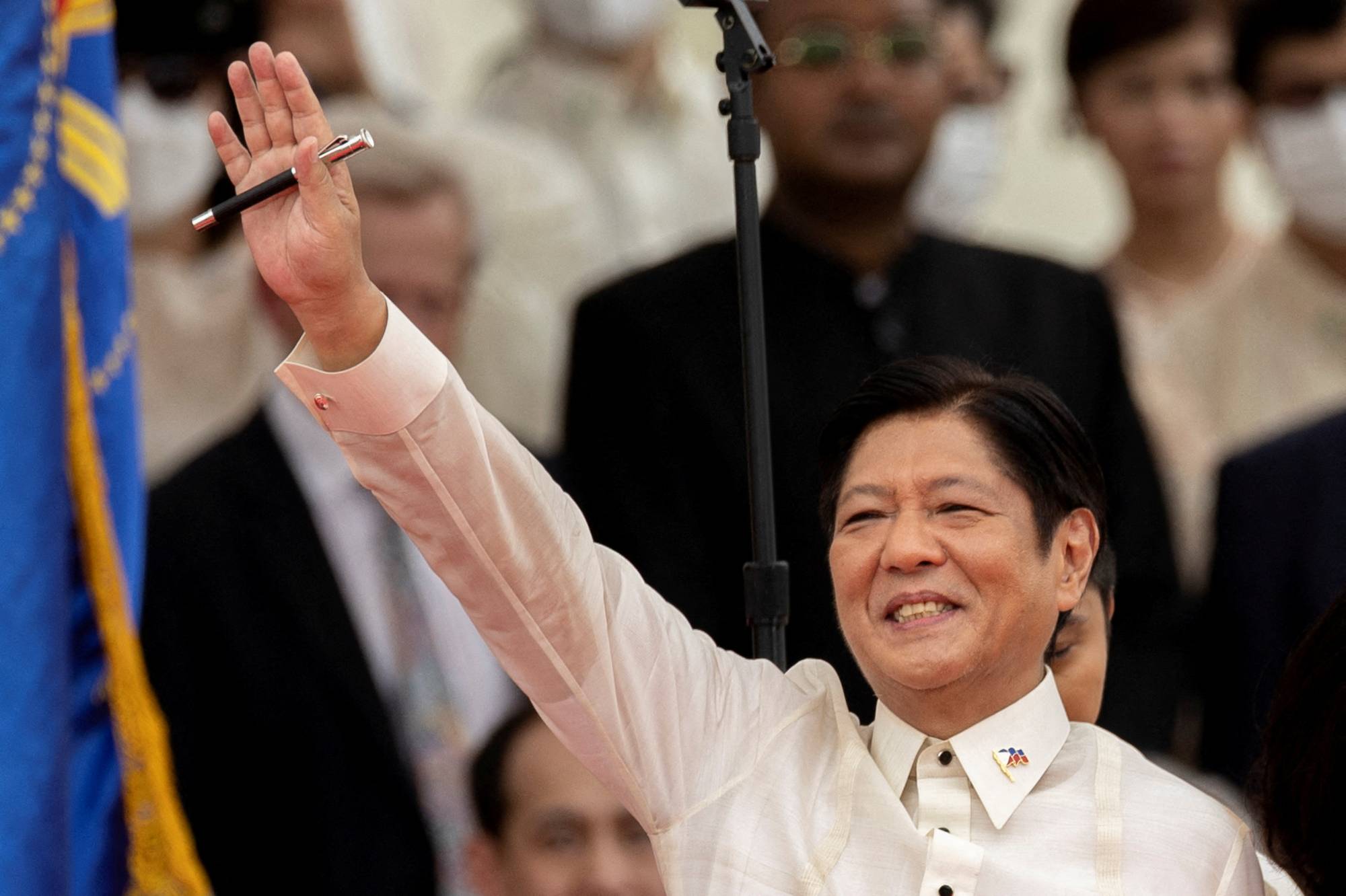The list of challenges faced by the Philippines’ new president is long. Ferdinand Marcos Jr. — the namesake son of the late Philippine dictator — has taken over a polarized country struggling with pandemic- and inflation-related economic woes, as well as corruption and crises in the education and public health sectors.
At the same time, his administration, which took over the reins in late June, has inherited major foreign policy and defense challenges from the previous government. Manila’s territorial disputes with Beijing in the South China Sea remain unresolved and the country finds itself in the middle of an intensifying “great power competition” between Washington and Beijing.
His predecessor, Rodrigo Duterte, gained international attention for seeking to pivot away from the United States toward China, and trying to systematically dismantle Manila’s military alliance with Washington, only to have to roll back those attempts after realizing that Beijing was not reciprocating his outreach.



















With your current subscription plan you can comment on stories. However, before writing your first comment, please create a display name in the Profile section of your subscriber account page.